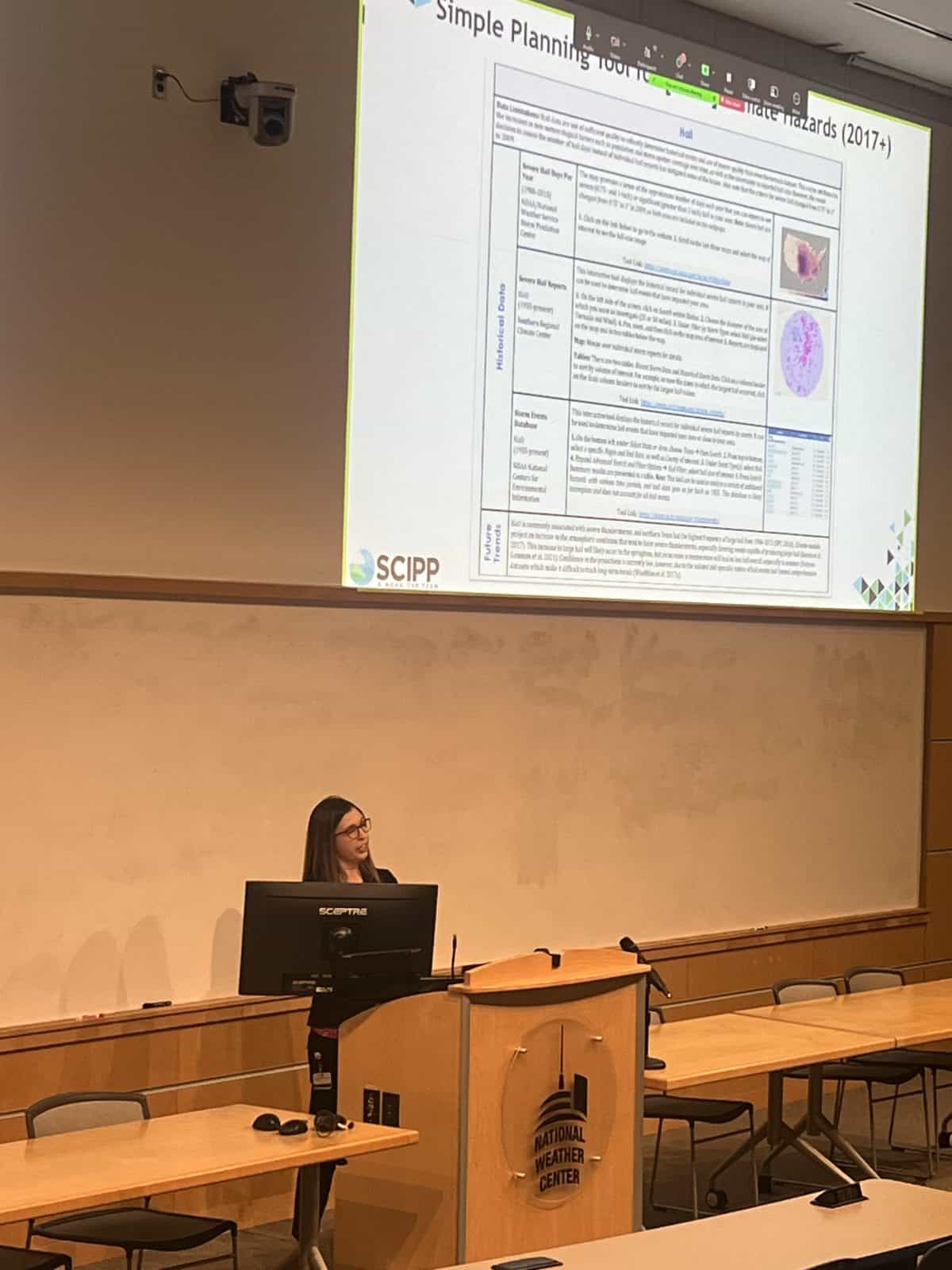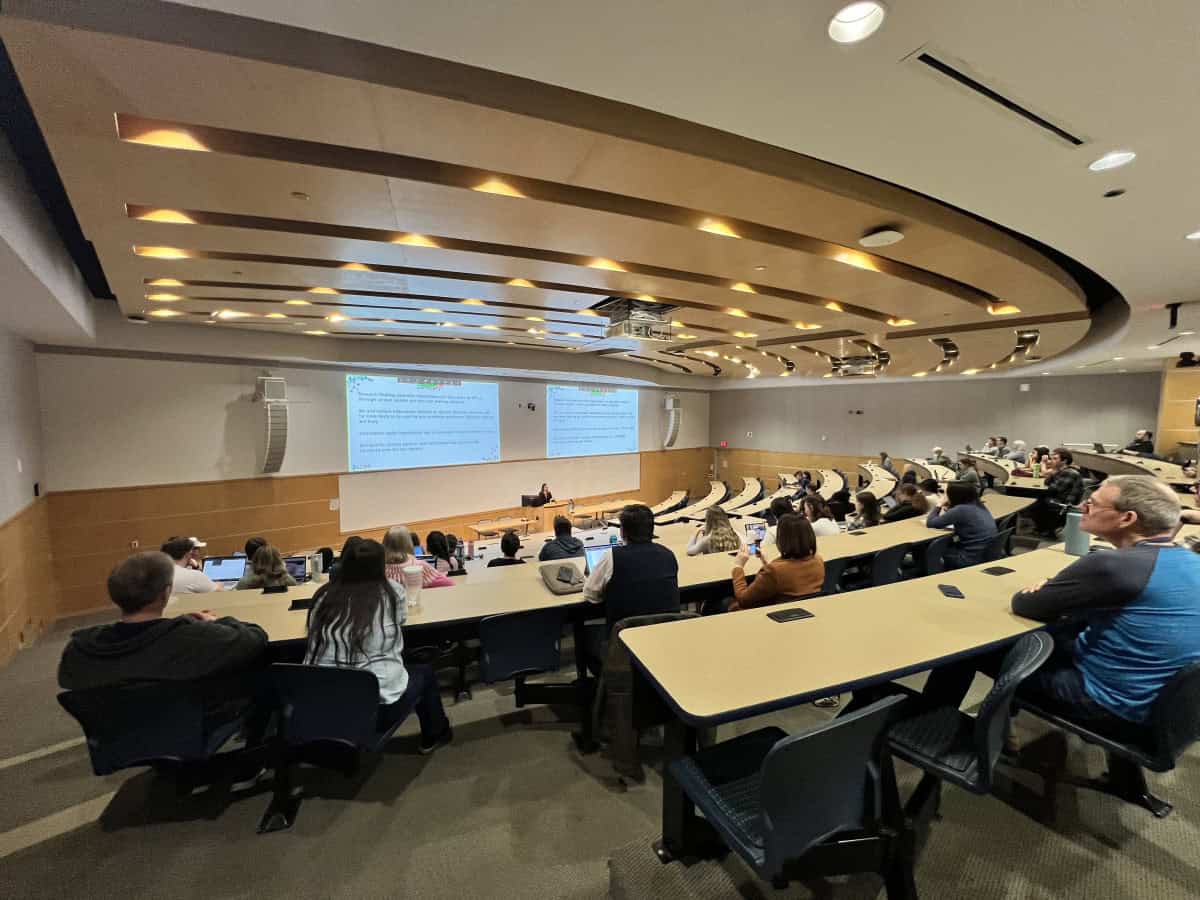
SCIPP Director, Rachel Riley, recently presented at the National Weather Center (NWC) Colloquium. Her presentation, “Increasing the Utility of Meteorological and Climatological Information for Non-Academic Audiences,” sought to inform listeners of the shortcomings that limit the impact of meteorological and climatological information and offer potential solutions. After providing a brief overview of the weather and climate hazards impacting the SCIPP region, Rachel shared information from a variety of engagement activities, case studies, and research projects conducted at SCIPP within the past 15 years. These activities and projects provided insight on the thought processes and timelines decision makers adhere to, allowing for increased understanding of the decision-making process. Rachel also discussed SCIPP’s Simple Planning Tool for Climate Hazards, which has evolved over time to better address stakeholder needs.
Major takeaways from the presentation are listed below.
- Research findings and their implications can take years to diffuse through various sectors and decision-making contexts.
- Weather and climate information tailored to specific decision contexts will be more likely to be used in by non-academic audiences. Decision makers are busy.
- Information utility can be assessed in many different ways.
- Demand for climate services and information has significantly increased over the past decade.
The insight and best practices shared through the presentation may help improve communication of scientific information to individuals without meteorological backgrounds, ultimately contributing to improved preparedness overall.

